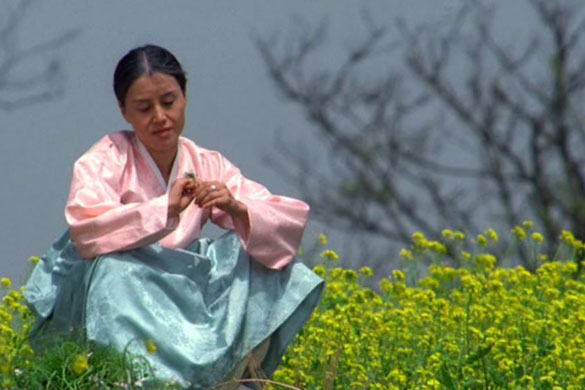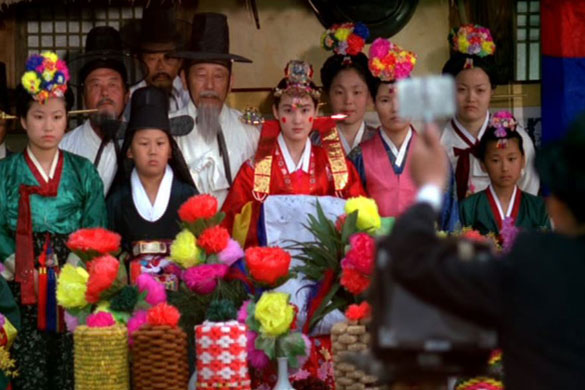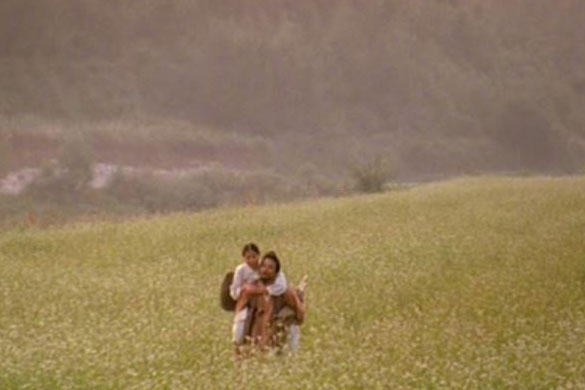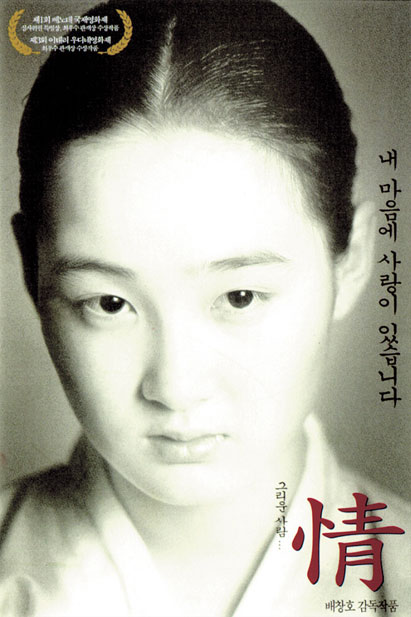
 |
||||
An elderly woman, Soonie (Kim Yoo-mee), sits in a tranquil countryside area near a makeshift road. While she waits for the arrival of the local bus, she catches sight of the back of her aged hands – unable to answer the question of when exactly her skin became so old and “stone-like” and realising just how quickly the years of her life have flown by.
Review: Following this brief introductory scene (an extension of which is featured towards the film’s conclusion, to give context in hindsight), we are transported back to 1920s Korea as sixteen-year-old Soonie is married to the ten-year-old son of the local village doctor. Co-written by director Bae Chang-ho and actress Kim Yoo-mee, My Heart consists of a series of episodes, if you will, that together not only tell the story of Soonie’s life but also define who she is both as a person and indeed as a a wholly traditional Korean female. The majority of these life, and life-changing events are heralded (or concluded, depending on your perspective) by small connecting scenes showing our heroine walking alone through countryside vistas, hills and dales from one situation to the next, carrying the entirety of her belongings in her hands and the weight of the world on her shoulders – an almost literal view of the long and winding journey of her life.
Not only that, but to my mind it is no coincidence that Bae Chang-ho and Kim Yoo-mee chose to have the character of Soonie read Pansori tales and sing Pansori songs of love and loss throughout My Heart, regardless of the situation she’s in or the person she’s with, for this absolutely heartfelt tale of one woman’s happiness, heartbreak and sacrifice is as touching and poignant as any Pansori story, in its own right. The above said, My Heart is also deftly peppered with some genuinely funny moments – Soonie’s ten-year-old husband’s decision to urinate out of a window on hearing people outside eavesdropping on his marriage night with Soonie; Soonie continually stoking the fire beneath the room of her husband’s female ‘friend’ (all the while muttering under her breath) to the point where the woman's floor is too hot to sit or even stand on; the pottery maker’s morning-after shock to discover Soonie in one of his rooms, having no recollection of his drunken kidnapping of her; etc – all combining to ensure that heartbreaking though Soonie’s story is on more than one occasion, it never feels heavy-handed or mired in gloom, at the same time virtually guaranteeing viewers will warm to the characters to the nth degree.
My Heart isn't a perfect film (if there even is such a thing): There are a couple of occasions where it's obvious we're watching actors acting; character depth could definitely have been far greater; and, in the case of the mother-in-law character, one particular interaction with Soonie seems rather odd and out of place when compared with other conversations and statements that occur in fairly close proximity to it. There have certainly been instances where such issues in a film have altered my overall feelings toward it, but My Heart's humour is so endearing, its narrative so engaging, and its heart so strong that in this case such imperfections stand as little more than minor niggles that I'm almost happy to let fly. In 2009, Bae Chang-ho and Kim Yoo-mee joined forces once again to co-write The Trip, a cross-generational story set on beautiful Jeju island and once more featuring Kim Yoo-mee in an acting role. While the film details three stories of wholly separate individuals (young, middle-aged and elderly) over a short period of time rather than My Heart’s focus on a single person’s love and losses over many years, the seeming episodic nature of each alongside overall commentaries on life as a whole through episode combination results in the two films having a great deal in common (and that’s a wholehearted compliment, by the way, and not a criticism on my part in any respect).
MY HEART (정) / 1999 / Directed by Bae Chang-ho
|
||||
All images © Bae Chang-ho Films Review © Paul Quinn |
||||



